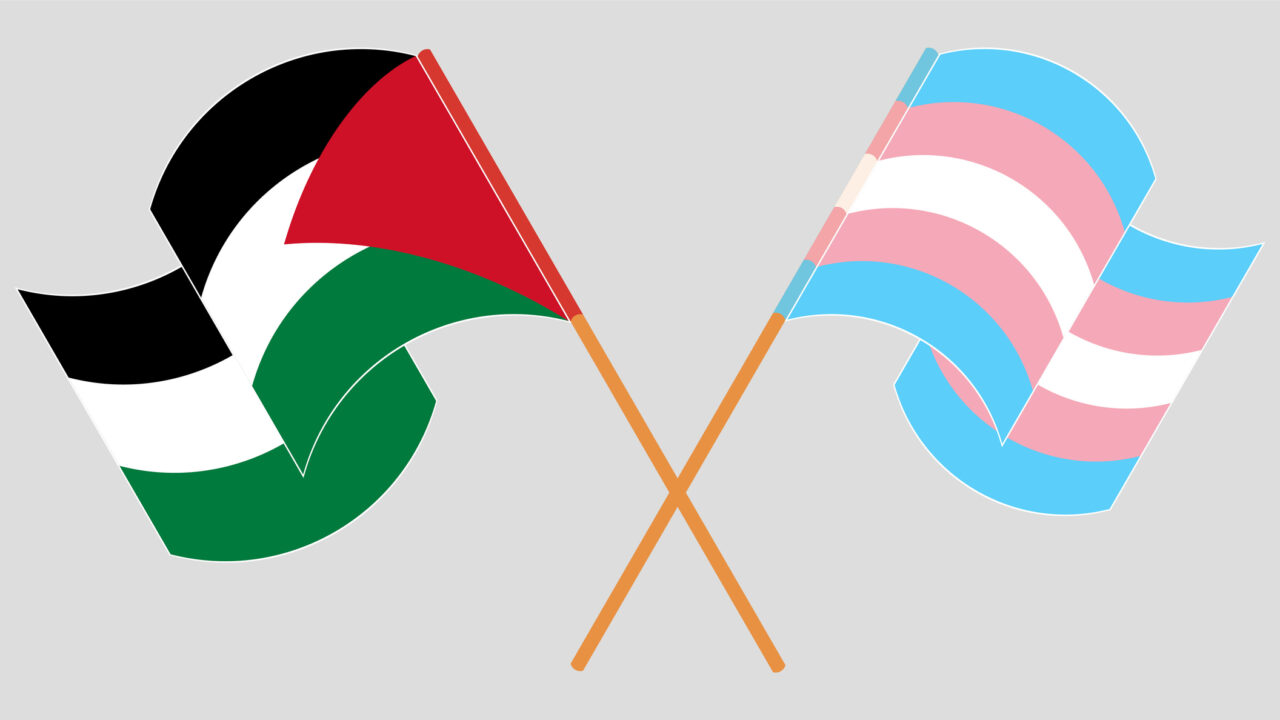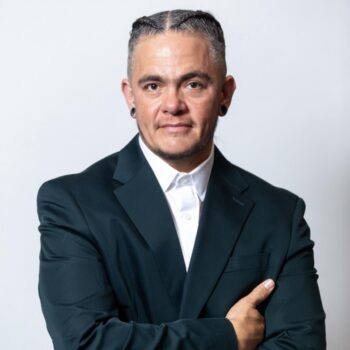Shelby Chestnut, Executive director of the Transgender Law Center, explains how trans liberation is inherently anti-colonial and inseparable from the struggle for Palestinian freedom.
We, as trans people, believe in change. It undergirds our lives and it is what calls us towards building a different world. We believe the fierce resistance of Palestinians is transforming our society and ecosystems, rippling through each of our communities and asking: what is our role within change?
Since October 19th, 2023, when Transgender Law Center (TLC) became one of the first LGBTQ organizations in the country to call for an immediate ceasefire in Gaza, reporters have asked how we reached this decision as an organization. The truth is that there were no deliberations. There was never a world in which TLC would not call for a ceasefire to the unfolding genocide in Gaza.
Our goal was never to be morally perfect, but to apply the values our community, together, has built over decades. One of those values reminds us: because of our Ancestors, we have already won. We carry forward a lasting legacy of freedom fighters – especially the leadership of Black trans women and femmes fighting for liberation –and we know that Palestinians are doing the same. The dynamic energy of change is propelled through the intentional practice of individuals that make up our movement.
It is as clear as ever to us that anti-colonialism is a necessity for a free world, and trans liberation cannot happen without anti-colonial efforts. This is demonstrated in our North Star: the Trans Agenda for Liberation. Co-written by TLC and community members across the nation, the Trans Agenda centers the lives and voices of Black trans women and trans people of color, who have too often had to advance our collective liberation from the margins. The Trans Agenda is a bold, cross-movement roadmap that asserts that trans justice is migrant justice, disability justice, racial justice, environmental justice, reproductive justice, economic justice, and gender justice. Because of that, we believe it is a blueprint for liberation for all people.
The second pillar of the Trans Agenda is called “Beloved Home.” This pillar, which holds at its heart the recognition that all of us are deserving of a beloved home, states from the very outset that forced migration and colonization are violence. As the whole world watched as the brutal violence against Palestinians escalated into genocide in the weeks after October 7, though the roots of the genocide began long before October, we needed to use our platform to remind our peers in the LGBTQ movement that trans liberation is inherently anti-colonial.
Just as our organization supports the sovereignty and land and cultural rematriation of Indigenous people who have been terrorized by US imperialism, so we stand with Palestinians forced from their homes and displaced from their livelihoods for a century or more. We stand – and we will always stand – with all people who have been forced over the centuries to flee from their homes and safety in Africa, Asia, South Asia, the Middle East, Latin America, and the Caribbean. And we demand a world where Indigenous cultural practices, land and body sovereignty are respected, where trans people are never forced to leave our homes, and where we have the freedom of movement to seek out our own belonging.
Trans liberation is inherently anti-colonial because colonization creates the conditions that trap trans people in a web of violence in the first place. We examine this in our Roots of Anti-Trans Violence reports, which demonstrate that violence against our community is designed systemically rather than simply an interpersonal phenomenon. In our first series of reports, we included Puerto Rico’s Centuries-long battle against imperialism, most currently in the form of its status as a U.S. territory.
At TLC, we also extensively track and analyze violence that trans people in the US experience, especially the homicides of Black trans women who are disproportionately impacted by this violence, to make meaning out of the data that we collect in ways that will shift the national conversation around the violence our communities face.
In our tracking, which we have been doing formally since 2015, we noticed an alarming absence of data for Indigenous trans, Two-Spirit, and gender-variant people in the US. Our second series of Roots of Anti-Trans Violence reports, which focuses on the violence faced by Indigenous communities, came directly from our ongoing learnings and our evolving anti-colonial lens.
The logic of colonization leads to the disappearance of our Indigenous communities, and we refuse to play a part in that. Our commitment to Indigenous people is a continuous affirmation of Indigenous life, wisdom, and leadership. Whether we are fighting for our survival in Palestine or defending ourselves against violence within the United States, all of us deserve to live as our authentic selves, with bodily autonomy and self-determination.
Just last month, we held a conversation among a group of queer, trans, and Two-Spirit people blocking the path of colonial violence in Congo, the Lakota Nation, Tonga, and Palestine. What tied them all together, despite the distances among them, was their mutual support of each other’s resistance. Global solidarity is not just a possibility–it is a reality. We are not alone when we say we believe in a future where we care for each other, no matter who we are, so we can live free from boxes and limitations.
The seeds have been planted by our fierce leaders around the world. It is our duty now to protect and tend to our garden of the future together.

